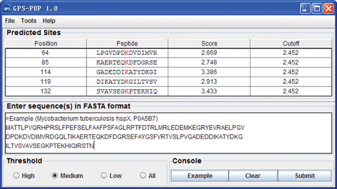Abstract
Recent experiments revealed the prokaryotic ubiquitin-like

- This article is part of the themed collection: Computational Biology
* Corresponding authors
a
Hefei National Laboratory for Physical Sciences at Microscale and School of Life Sciences, University of Science & Technology of China, Hefei, Anhui 230027, China
E-mail:
xueyu@mail.hust.edu.cn, xueyuhust@gmail.com
Fax: +86-27-87793172
Tel: +86-27-87793903
b Hubei Bioinformatics and Molecular Imaging Key Laboratory, Department of Systems Biology, College of Life Science and Technology, Huazhong University of Science and Technology, Wuhan, Hubei 430074, China
c
State Key Laboratory of Biocontrol, School of Life Sciences, Sun Yat-sen University, Guangzhou, Guangdong 510275, China
E-mail:
renjian.sysu@gmail.com
Fax: +86-20-39943788
Tel: +86-20-39943788
Recent experiments revealed the prokaryotic ubiquitin-like

 Please wait while we load your content...
Something went wrong. Try again?
Please wait while we load your content...
Something went wrong. Try again?
Z. Liu, Q. Ma, J. Cao, X. Gao, J. Ren and Y. Xue, Mol. BioSyst., 2011, 7, 2737 DOI: 10.1039/C1MB05217A
To request permission to reproduce material from this article, please go to the Copyright Clearance Center request page.
If you are an author contributing to an RSC publication, you do not need to request permission provided correct acknowledgement is given.
If you are the author of this article, you do not need to request permission to reproduce figures and diagrams provided correct acknowledgement is given. If you want to reproduce the whole article in a third-party publication (excluding your thesis/dissertation for which permission is not required) please go to the Copyright Clearance Center request page.
Read more about how to correctly acknowledge RSC content.
 Fetching data from CrossRef.
Fetching data from CrossRef.
This may take some time to load.
Loading related content
